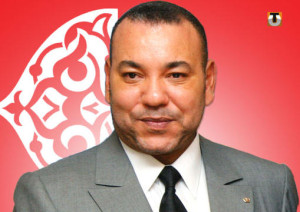DAKAR, Senegal – The multinational maritime exercise Saharan Express 2013 (SE-13) successfully concluded with post-sail discussions and a press conference, Mar. 14.
SE-13, which began Mar. 7, is a maritime exercise designed to improve cooperation among participating nations in order to increase counter-piracy capabilities and deter maritime crimes in West Africa.
“During the past week, eight West African nations, five European nations and the United States worked very well together,” said Capt. Andrew Lennon, U.S. exercise director for SE-13. “With the skills they developed during Exercise Saharan Express, the participating nations are better prepared for real world operations. They now have a better capability to stop weapons and narcotics trafficking and prevent illegal fishing.”
Focusing on counter-piracy and maritime security operations, the exercise included a wide variety of training for participating forces, including at-sea ship boarding and queries, medical familiarization, air operations, communication drills and regional information sharing.
“This marks the third time that this exercise has been conducted,” said Lewis Lukens, U.S. ambassador to Senegal. “I’m happy to say that it has become a cornerstone in our efforts to achieve the improvement of maritime security in the waters off West Africa.”
SE-13, which has occurred annually since 2011, is one of the four African regional Express-series exercises known as Africa Partnership Station (APS). The regional maritime exercises test skills learned from previous APS training events.
“Saharan Express is not just another task passing across the desk of the Senegalese armed forces,” said Rear Adm. Mohamed Sane, Senegalese Sous-Chef d’Etat Major Général des Armées. “It is an exercise of great importance for the Senegalese navy and the naval forces of the sub-region. It allows us to practice the techniques taught to our crews and is, as such, an indicator of the progress we are making in strengthening our capacity to carry out the tasks entrusted to us.”
During SE-13, 10 ships, four aircraft and four maritime operations centers were operated by participating nations to achieve their common maritime security goals through partnerships and collaboration while focusing on deterring piracy, countering illicit trafficking and protecting resources.
As part of the U.S. Navy's global maritime partnerships, APS was developed to support sustained, focused training and multinational and organizational collaboration on a regional scale in order to increase maritime safety and security in Africa.
Eight West African and six European nations participated in SE-13 including Cape Verde, Cote d’Ivoire, France, The Gambia, Liberia, Mauritania, Morocco, The Netherlands, Portugal, Senegal, Sierra Leone, Spain, United Kingdom and the United States.
SE-13, which began Mar. 7, is a maritime exercise designed to improve cooperation among participating nations in order to increase counter-piracy capabilities and deter maritime crimes in West Africa.
“During the past week, eight West African nations, five European nations and the United States worked very well together,” said Capt. Andrew Lennon, U.S. exercise director for SE-13. “With the skills they developed during Exercise Saharan Express, the participating nations are better prepared for real world operations. They now have a better capability to stop weapons and narcotics trafficking and prevent illegal fishing.”
Focusing on counter-piracy and maritime security operations, the exercise included a wide variety of training for participating forces, including at-sea ship boarding and queries, medical familiarization, air operations, communication drills and regional information sharing.
“This marks the third time that this exercise has been conducted,” said Lewis Lukens, U.S. ambassador to Senegal. “I’m happy to say that it has become a cornerstone in our efforts to achieve the improvement of maritime security in the waters off West Africa.”
SE-13, which has occurred annually since 2011, is one of the four African regional Express-series exercises known as Africa Partnership Station (APS). The regional maritime exercises test skills learned from previous APS training events.
“Saharan Express is not just another task passing across the desk of the Senegalese armed forces,” said Rear Adm. Mohamed Sane, Senegalese Sous-Chef d’Etat Major Général des Armées. “It is an exercise of great importance for the Senegalese navy and the naval forces of the sub-region. It allows us to practice the techniques taught to our crews and is, as such, an indicator of the progress we are making in strengthening our capacity to carry out the tasks entrusted to us.”
During SE-13, 10 ships, four aircraft and four maritime operations centers were operated by participating nations to achieve their common maritime security goals through partnerships and collaboration while focusing on deterring piracy, countering illicit trafficking and protecting resources.
As part of the U.S. Navy's global maritime partnerships, APS was developed to support sustained, focused training and multinational and organizational collaboration on a regional scale in order to increase maritime safety and security in Africa.
Eight West African and six European nations participated in SE-13 including Cape Verde, Cote d’Ivoire, France, The Gambia, Liberia, Mauritania, Morocco, The Netherlands, Portugal, Senegal, Sierra Leone, Spain, United Kingdom and the United States.
Read more: http://www.dvidshub.net/news/103524/saharan-express-2013-concludes-senegal#.UUPLEReOQY8#ixzz2Nf79VM00



